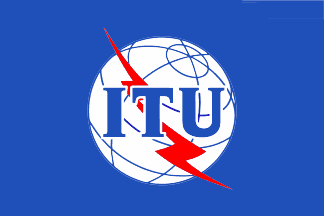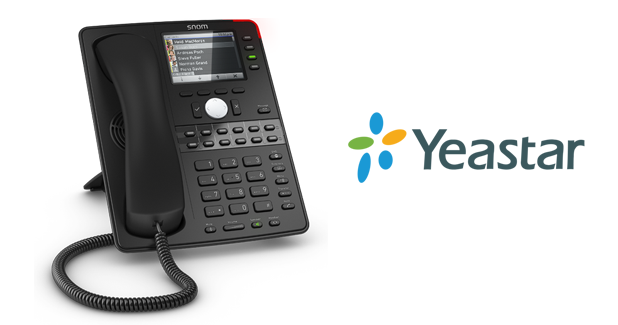A leading global provider of telecommunications solutions and services, Tata Communications, has announced the acquisition of the Dutch IoT specialist and mobile network enabler, Teleena. This deal is a clear investment in technology and talent that are expected to contribute to Tata Communications’ growth in the IoT and mobility markets. “The growth rate in the global mobility and IoT market is phenomenal: by 2021, enterprises’ spending on mobility alone is set to surpass USD 1.7 trillion,” commented Anthony Bartolo, the Chief Product Officer at Tata Communications. “Our vision is to create an environment where anything can be ‘born connected’. Providing everyone and everything in the world with seamless connectivity globally will support businesses’ digital transformation. The combination of the Tata Communications MOVE™ platform and Teleena’s technology and talent will help us fulfill this vision, and accelerate our growth in the mobility and IoT market.” This agreement did not…
The city of Kitchener, in Canada, Ontario, is home of a new app called OpenPhone. Its ambition is to help small entrepreneurs stopping the blurred line between private and business phone calls. Many services already exist in this specific field, like Phone.com or Grasshopper, but OpenPhone’s main feature is to simplify the process and focus and ease of use. As of today, the app let user share one phone number across several phone, using VoIP technology. Still in its beta version and available on the Appstore since January, the company expects to launch in a couple of months a final version. An Android version hit the Google platform in June. OpenPhone will allow customers to make concurrent calls on several devices, transcribed voicemail and call forwarding. This way, small businesses will have the opportunity to have a better communication between customers and entrepreneurs.
After suing Apple over patents infringement VoIP-Pal is determined to launch the exact same process with Amazon. The lawsuit has been filed in Nevada, and is focusing and Amazon’s cloud-based virtual assistant, Alexa, especially on its calling and messaging services. The Washington-based company blames Amazon for using the very same four patents that it is suing Apple for. In Amazon’s case, the technology is used to make function voice and video calls or voice messages. Voip-Pal is trying to make profits from patents they own that are based on VoIP technology. The CEO of Voip-Pal, Emil Malak said, “After investigating Amazon’s Alexa platform and Echo line of products our technical team has concluded that the calling and messaging functions infringe our patents. Amazon’s foray into communications seems to be part of a larger trend of giant corporations battling for market dominance by offering Internet-based communication products that integrate with traditional…
Security researchers from Rapid7 have found a large number of insecure UDP Internet services in Germany, which are used for VoIP. The researchers found nearly six million exposed SIP services on port 5060 / UPD, more than any other country in the world. The Session Initiation Protocol (SIP) is used to establish a communication session in Internet telephony and is particularly difficult to secure. Only encrypted SIP (SIP-TLS on port 5061 / TCP) provides adequate protection against active and passive eavesdropping and toll fraud, but plain text SIP is still widely used in Germany. This is demonstrated by Rapid7’s new National Exposure Index, an annual ranking that examines the extent to which countries around the world are at risk of active cyber attacks. For the study, Rapid7s security researchers scoured the entire Internet for TCP / IP services that, for example, are not secured with modern encryption methods or offer…
One of Africa’s largest economy, if not the largest (an ongoing debate with South Africa), Nigeria’s VoIP sector has seen in increase of subscription over a period of 12 months. With 93% of growth on one year, VoIP went from 46,348 users in May 2017 to reaching 89,447 in April 2018. Out of the two main operators in that segment, Smile Communications is in charge of 93% of the market with 83,445 accounts against 6,032 for its smaller rival, Ntel network. Still, the VoIP technology is a very narrow market on a GSM-dominated market. So far VoIP represents 0.06% of communications when GSM accounts for 99.7%. This is mainly due to a lack of broadband penetration into the country’s infrastructure. The Nigerian Communications Commission (NCC) assured that it expect to increase broadband penetration to 30%, compared to 22% right now, by putting on policies to achieve this goal. Prof. Umar…
New technologies, especially in wireless communications, is helping increase VoIP services. As smartphones, laptops and tablets are being more available worldwide, VoIP services are also growing and the competition between different providers is leading to a constant update in their offers. The BYOD (Bring Your Own Device) policy that is spreading in companies is another key factor in this demand on VoIP. Devices like phablets (a mix between smartphones and tablets like the Galaxy S9+) are replacing computers on many aspects. The PMR (Persistence Market Research) expect the market to grow up to US$ 194.5 Billion in the next seven years. Most of this increase will be from long distance VoIP calls that could represent US$ 120 Billion in revenue.
The secretary-general of the International Telecommunication Union (ITU), Zhao Houlin, explained at a press conference in Geneva, Switzerland, that infrastructure, investment, innovation and inclusion, or the “4 I’s”. Those pillars for information and communication technology (ICT) will be an obligation to reach the UN Sustainable Development Goals (SDG), especially for the next ten years. Infrastructure are essential to hold any economy based on communication and high tech. The future of digital economy in sustainable cities, will largely be based on the capacity to construct strong equipments for those infrastructures, not only to connect people but also objects. Strong investments are fundamental for the development of ICT. In order to see progress on SDG, innovation in the domain of finance will be needed and a mix between public and private investors is one of the solutions. Opportunity is only possible with innovation, thus small companies that base their growth and survival…
BullsEye Telecom has entered the VoIP based Key System market. Founded in 1999 in Michigan, BullsEye started by focusing on its local market. Since then, they provide SD-WAN, VoIP, broadband, and POTS to customers across the U.S. They acquired an experience in converting Plain Ordinary Telephone Service (POTS) to VoIP lines. It was able to be a leader company in the U.S. as a multi-location communications solutions provider. They announced yesterday the launch of its VoIP Based key system. Evan Branstnern, network endpoint engineer, explains: “The goal with BullsEye’s VoIP Key System was to replicate a phone system that people are used to while at the same time integrate the latest technology and best practices that are reflected in a VoIP-based product.” This technology will let users park calls with just a button, and then see which line is parked or available. It also let calls being picked up from…
Yeastar is a Chinese company founded in 2006 and based in Xiamen. It offers innovative equipments in VoIP PBX systems and VoIP Gateways for the SMB. Since then, Yeastar became a leader in the industry. On the other hand, Snom (a leading German manufacturer) started in 1997 as one of the first to understand the VoIP technology, thus offering in 2001 the first IP phone. It has today one of the largest catalogue of products for any kind of business or need in connection to communication. It became in 2016 a division of VTech Holdings Limited. Both companies had an history of making sure that their products could work together. Still the interoperability was not complete until recently. As for now, Yeastar auto provisioning supports all the Snom IP Phones, as they were all successfully tested. The full range of Snom IP phones, including the latest Snom D785 advanced desk phone…













